Nearly eight years after the 2014 Independence referendum, support for Independence has continued to grow. We have worked as a branch to bring together these short articles which show why we believe Scotland should be an independent country.
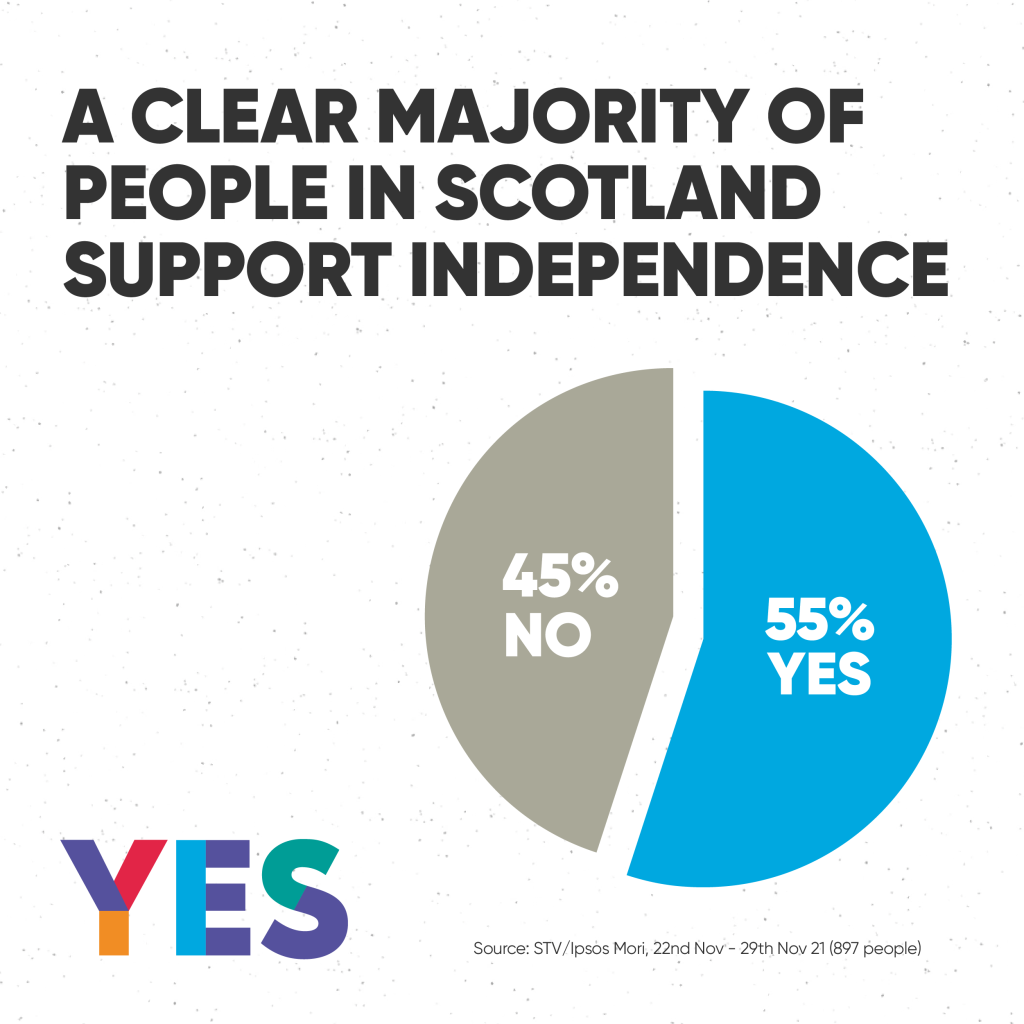
Why Independence is Normal
Nearly eight years after the first Scottish independence referendum, the debate surrounding whether the country should break away from the rest of the UK has only intensified so here is a selection of just some of the reasons why we think that Scotland should be an independent country. If you agree with most of these reasons, then make sure you vote YES at Scotland’s next Referendum for Scottish Independence.
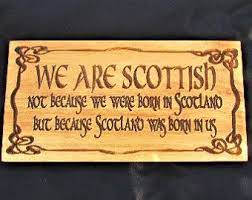
Taking Responsibility
Finally, Scotland will be able to take responsibility and get the opportunity to make changes that can benefit all of the Scottish people. The Scots can do what they do best and create a fairer nation. Scotland is a caring nation with great hospitality and an incredible sense of humour.

Scotland should have the right to self-determination
You want the right of self-determination as a Scottish citizen, so we can decide Scotland’s future together instead of being subjected to the dictates of Westminster. Who better would be able to look after Scotland’s needs than a local government with all the governing powers at its disposal?
It doesn’t make sense that a parliament in England can overrule the Scottish parliament on virtually anything and there is always the looming threat that Westminster could dissolve the Scottish parliament at any time.

Get the Government WE choose
The Tories are in power in the UK even when the majority of Scots have not chosen them. Scottish citizens are outnumbered ten to one. This means that whatever opposition party the Scots vote for in a UK General Election, it’s highly unlikely that any Scottish Political Party can be part of a UK Government to represent Scotland’s needs. With Sunak’s Tories and Starmer’s Tory-Lite in charge, the goal for Scotland to move towards a fair and harmonious society will diminish even further.
No more building Nuclear Weapons
We should stop building Nuclear Weapons in Scotland; it is unethical and morally wrong. Under “The Treaty on the Non-Proliferation of Nuclear Weapons” the UK expects all other countries to sign this agreement to disarm Nuclear Weapons but has excluded itself. Under the treaty, it continues to build more Nuclear Weapons in Scotland. If you believe in peace instead of war, let’s stop building weapons of mass destruction and start caring for the people and the planet.
Scotland has the resources and finances
Scotland has the resources and finances to become independent. One of the early myths created by the No Campaign in 2014 has been debunked, and even the Unionists agree that Scotland has what it takes to become independent and the Scottish people will be better off financially.

Unsure about the future after Independence?
Some people are scared of how an Independent Scotland will change their day-to-day lives. Yes, things may improve and become better, but the change itself feels overwhelming and daunting. Some are unsure what they would benefit from it personally. Although experts assure that Independence will create more jobs, and be better for pensioners, people with children and people in need of better healthcare.

Thinking that Scotland cannot make it alone?
Some believe Scotland cannot make it on its own. We just have over 5 million people and a large land mass. However, did you know that other countries with the same population or land mass as we have are thriving in Europe Especially the countries using the ‘Scandinavian model’. They all have modest populations but thriving economies.
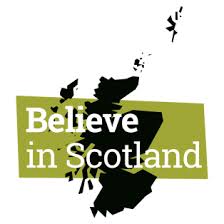
“Scotland spends more than it generates“ – False!
The UK government would like to convince everyone that the Scottish people would be financially worse off after independence. If this is true why are they so desperate to keep Scotland in the union if it supposedly costs them so much money? Are they really being totally honest about it?

Scotland and England have opposite Political and Social views
We love Scotland, and we love England. Why should both countries suffer from having to compromise political decisions to please both sides? Let’s respect each other and go our own way. In doing so, we’ll become better friends and neighbours than we are ever going to be in a forced political marriage.
A Skilled Population
One of Scotland’s most valuable resources is its people. With successful universities (4 in the world’s top 200) and colleges, Scotland has a capable and educated population with boundless potential. Scotland has the most educated people in Europe, with 47% of the population, aged 25 to 64, having a university, college or vocational qualification. This is 4% above the UK and 15% above the EU average. Universities and colleges in Scotland produce high-quality research and teaching. This has resulted in Scotland welcoming over 50,000 students from 180 different countries every year, demonstrating its desirable education system, top-class universities, and excellent reputation.

Access to Trading Markets
Scotland is well-placed for trade. It has a strong trading relationship with countries across the world, especially the United States, with an estimated £5.5 billion of exports from Scotland in 2017.
Most of Scotland’s exports (60%) go to the rest of the UK. This is due to the fact that successive UK governments since Margaret Thatcher have sought to maintain a strong pound to support the financial services sector (mainly based in London). This has forced Scottish business to trade more with the other UK nations as other countries have not been as able to afford Scotland’s exports. Consequently, many Scottish-based manufacturing businesses were put out of business, and those that survived were forced to focus on UK trade rather than establishing trading partnerships across the world. However, Scotland holds great potential, with extensive services and access to trading markets, to increase international trade and rapidly expand its exports to the European Union (assuming membership).
Being Pro-Independence, because you don’t like or even hate the English
Wanting Scotland to be an independent country has nothing to do with hating the English or revenge for anything that happened in the past. It’s a political matter to move the governing powers closer to home where it matters. It’s the right of the Scottish People to have self-determination and decide what is best for Scotland.
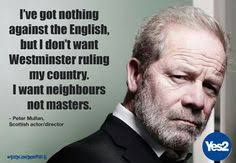
Extensive Financial Service Systems
Scotland has many institutions that can handle large-scale financial projects, expansions and investments. Outside of London and the South East of England, Scotland is recognised internationally as the most important financial centre in the UK.
The financial sector makes a positive contribution to Scotland’s economy as a whole. This is accomplished through its direct economic impact from financial services and also its employment. Currently, finance and professional services employ 161,000 professionals, and 290,000 students are studying for future careers in this sector. Although Business for Scotland acknowledges the importance of a financial sector, it would be important for an independent Scotland to also consider prioritising other sectors, such as manufacturing. That way, Sterling will not be kept too high to solely support the finance sector.

Natural Resources
Scotland is a Resource-Rich Country. It has enviable levels of tidal, wind and wave energy, and has become a world leader in the development and deployment of renewable technologies. For example, Scotland holds the world’s leading wave and tidal test centre, the European Marine Energy Centre, in Orkney. Scotland also has several competitive advantages in offshore wind. However with a group of MPs referring to onshore wind as “inefficient and intermittent”, the Conservative party made a manifesto pledge to remove subsidies from new onshore wind projects. This decision was made by Westminster without consulting either the industry or the Scottish Government first. This demonstrates Westminster’s power to ‘pull the plug’ on Scotland whenever they wish, despite the detriment to Scotland’s economy and future as a greener nation.

Being Against Independence, because you believe Scotland is too ‘wee’ to be its own country
All political parties and sides have concluded that Scotland has what it takes to be independent. Scotland has the people, the resources and the finances to run an independent country.
Even many people from the conservatives have finally admitted that Scotland has more than enough to be its own country, but England needs Scotland for its resources.

Westminster
Westminster isn’t working, and this has become more apparent with the chaos surrounding Brexit, Boris Johnston, Partygate, a near billionaire Rishi Sunak was in charge of finances and now a looming cost of living crisis and it’s a crime that in this UK that the rich get richer and the poor are getting poorer and with a House of Lords that is completely out of touch with ordinary people why should we be part of this failing establishment. Scotland will have the power to improve the economy and create more jobs for the benefit of Scotland and the people of Scotland. That is why Scotland would thrive as an independent nation.
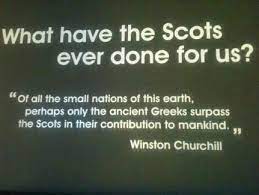
Prosperity Needs Independence
Scotland is almost unique in the developed world, holding all the ingredients that contribute towards the creation of wealth, without actually fully enjoying the benefits of it. Other medium-sized European countries have used their strengths to become prosperous and successful countries. Scotland has this opportunity too. Yet, Scotland still lacks the final factor for economic success: self-governance Independence would allow for decisions on trade, industry, social security, defence and immigration to be made in Scotland’s interest. Westminster isn’t working, and this has become more apparent with the chaos surrounding Brexit. With independence, Scotland will have the power to improve the economy and create more jobs for the benefit of Scotland and the people of Scotland. That is why Scotland would thrive as an independent nation.

Economy
In the 21st century, Scotland will compete on quality within the global economy. Countries such as China and India and other comparatively low-wage economies will produce the cheapest goods. Therefore, Scotland must focus on output that cannot be reproduced. Fortunately, Scotland already has a substantial number of globally renowned sectors and products that are popular in the global economy market. Scotland’s strengths in areas such as whisky, life sciences (biological and medical), research and development, renewable energy projects, electronics, textile design and the games industry are competitive advantages in growth sectors. Improvements within these fields have created economic benefits such as Scotland’s Gaming industry which grew by 27 per cent in 2016-17, with direct and indirect revenues of more than £170 million. The Edinburgh-based, Rockstar North, also succeeded in making their game, Grand Theft Auto, one of the best-selling video games ever. An independent Scotland has the ability to expand on this and boost industries in Scotland by creating an environment where small and medium-sized businesses can prosper.
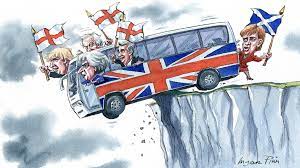
Brexit and the new status quo
Many of the arguments will be familiar from last time. We as Independence supporters will argue that Scotland has comparable strengths to other small countries. We have a vision of a socially progressive independent Scotland within the EU, with a less favourable future in post-Brexit Britain. The unionist parties will emphasise the risks and the costs of putting up barriers to the UK economy. They will argue that Holyrood already has substantial powers over key economic policy areas within skills and education, economic development and, since 2016 some areas of the tax system but in other ways, the debate has changed markedly. Back then, the choice was between independence and a relatively stable status quo – albeit with a pledge of “more powers” that was made in the days before the 2014 vote.
But Brexit makes the future much less certain for the UK and Scotland. Scotland’s economy will be worse off. “No” voters in 2014 who feared that Scotland might find itself outside the EU – even temporarily – might view the economic risks and opportunities very differently this time
Scotland has…
Tourism – The biggest arts festival in the world is in Edinburgh. We have countryside, lochs, rivers and mountains. We have castles, battle sites and heritage galore we have even got Nessie. You can’t throw a stick without hitting a castle of some sort – and all attract visitors from every corner of the world In North America our old Clan System is a great marketing tool

Water – lots of it, Hydro power, lots of it and of course oil and gas, which despite the advent of the electric vehicle, will still be in demand for many years to come.

Agriculture – Beef, Lamb, Venison, not to mention pork and chicken. Plus soft fruits – strawberries, raspberries, barley and if my memory serves me right, tapioca (not a big thing in the UK any more, but an export product for Africa), and of course turnips, potatoes and beet
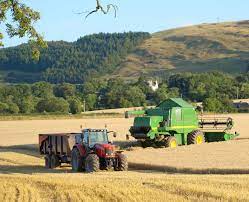
Aquaculture One of the largest exporters of Salmon worth over 600 million per year, and before Brexit one of the largest exporters of fish and crustations
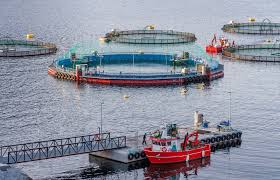
And most importantly it also has a massive distillery sector, £4.7Bn in 2018. Growing at about £1.7bn per year.
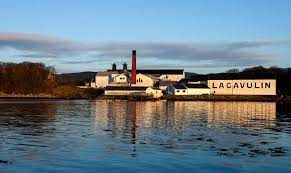
Project Fear 2014
In Scotland’s 2014 referendum, the pro-Unionist “Project Fear” focused on the risks of independence, including, ironically, the risk that an independent Scotland would not automatically be in the EU. Now the case for the status quo looks ever riskier. When Indyref 2 starts be prepared for PROJECT FEAR to reoccur the sky will fall down, the crops will fail, your granny’s pension will be stopped everyone will be out of a job, all the Pubs and takeaways will shut, and every other disaster you can imagine will befall Scotland
Be warned it will happen!
After Independence: the Currency question
On currency, the Scottish National Party proposes to retain Sterling for the transition period required to ensure that the country is ready — and clear tests met — to launch its own currency. This means that its new central bank will not have the full responsibilities of the Bank of England, just as national central banks inside the eurozone do not. It means monetary policy will stay with the BoE for this period, while Scotland focuses on creating the new institutions that are needed and governing well. When those tests are met, it will be an emblem of success. What this means, of course, is that on matters of currency and monetary policy, there will be no immediate change with independence but an orderly transition over time.
On public finances, Scottish tax revenues cover the equivalent of the entire Scottish government budget plus social security and pensions payments in Scotland. Any deficit reflects UK government programmes which could be replicated or not. The pandemic has demonstrated that there is an appetite in debt markets for government bonds at historically low-interest rates. The priority everywhere now — as even the IMF entreats — is for investment that lays the ground for reform and future economic vibrancy. Scottish public finances will have to be brought to sustainable levels over time. This can be done purposefully, but without the self-defeating austerity strategy that most economists now agree was a UK policy error after the 2008 financial crisis. The SNP also proposes to pay an annual solidarity payment to the rest of the UK to cover a negotiated share of UK legacy debt interest, taking account of asset distribution and any joint programmes that continue.

